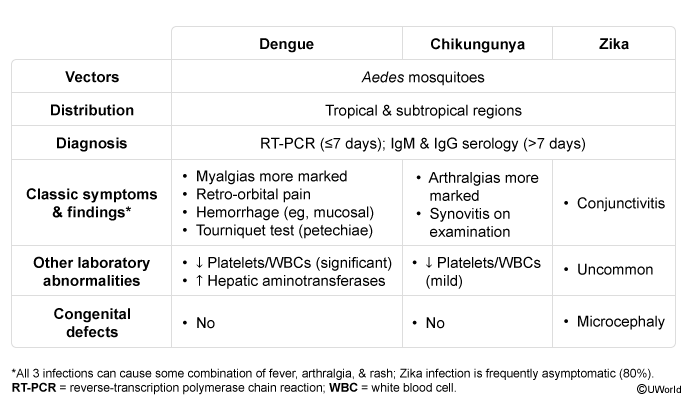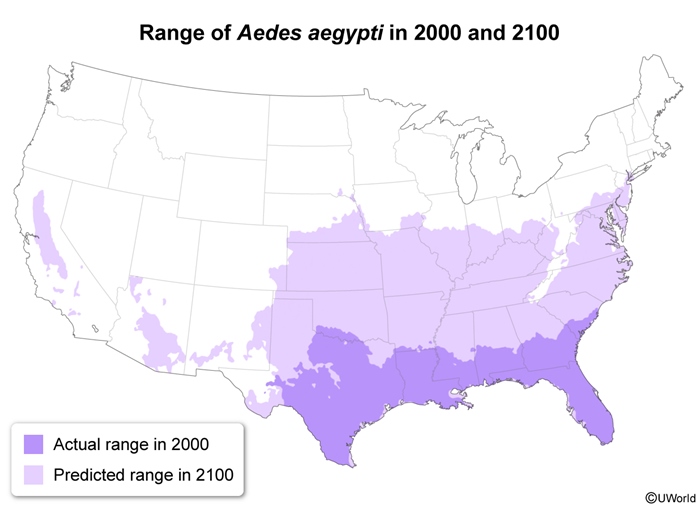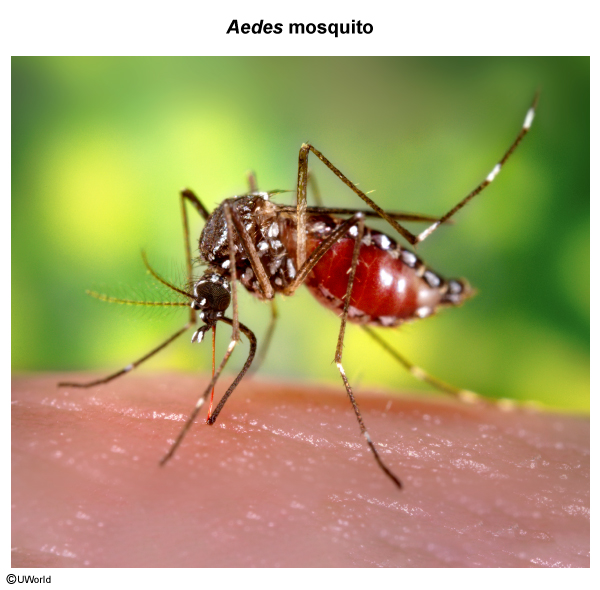Dengue Virus Infection
Article Sections
Introduction
Dengue virus (DENV) is a flavivirus transmitted to humans by the bite of infected Aedes mosquitoes (Image 1). The majority of DENV infections are either asymptomatic or cause a self-limited febrile illness (dengue fever). However, a small number of infections (<5%) can produce severe illness with bleeding complications (dengue hemorrhagic fever) or circulatory collapse (dengue shock syndrome).
Epidemiology
The principal mosquito vector of DENV is Aedes aegypti, although other Aedes species (eg, Ae albopictus) are capable of transmission. DENV has a worldwide distribution that covers the same tropical and subtropical regions inhabited by its vectors. Infection can also be transmitted by blood product exposure, but maternal-fetal and sexual transmission are rare.
Pathogenesis and clinical presentation
Aedes mosquitoes become infected by feeding on blood from viremic humans (DENV's main reservoir). Subsequent blood meals by an infected mosquito transmit DENV into the skin of victims, where it migrates to the lymphoid tissues and produces viremia.
Continue Learning with UWorld
Get the full Dengue Virus Infection article plus rich visuals, real-world cases, and in-depth insights from medical experts, all available through the UWorld Medical Library.
Unlock Full AccessFigures


Images
